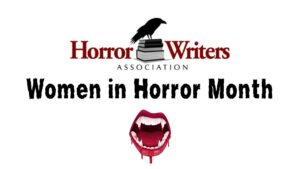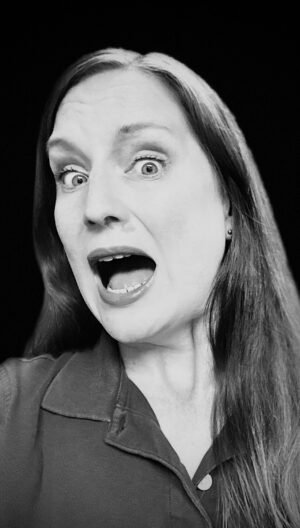Women in Horror Month 2024: An Interview with Holly Rae Garcia

What inspired you to start writing?
I’ve been a reader for as long as I can remember. During one particular book club meeting, I found myself criticizing a book and then saying, “But they wrote a book and I didn’t, so what do I know?”. So, in 2019, I wrote a book to see if I could. Readers don’t always comprehend how hard it is to actually write a book. And it is hard. I can almost hear the lifelong authors laughing at me for not realizing this. But it’s also immensely gratifying and addicting. I was hooked. During that book-writing process, I participated in several short story prompt-led competitions, read interviews with authors, listened to writerly podcasts, and read everything about writing that I could get my hands on. Every new nugget of knowledge made me realize just how little I knew but also how much I loved it. Since then, it’s been a process of constant learning and working on finding my own voice. I still don’t know when I’ll feel I’ve earned the title of “author”, especially as I see hundreds around me who have been doing it decades longer (and better) than I have.
What was it about the horror genre that drew you to it?
There is a French phrase, “l’appel du vide,” which translates to “the call of the void.” It’s defined as the impulse to hurl yourself into a void, or otherwise cause bodily harm to yourself but walking away without doing so. Researchers say those who experience “the call of the void” have a great appreciation for life, and it’s a rush to get close to the edge knowing full well they’ll step back before anything happens. I frequently experience l’appel du vide, and writing horror gives me a similar feeling. I’m close to that edge; I’m covered in blood, driving off a bridge, or having my intestines ripped out of me. But I’m not. I’m safely at my computer, tapping away at my keyboard.
Do you make a conscious effort to include female characters and themes in your writing?
Being a woman myself, it’s easy to default to that perspective for my characters. I often have to make a conscious effort to include male characters or themes in my writing and if so, what do you want to portray? I only want to portray women exactly as we are. Sometimes we’re the princess, sometimes we’re the dragon, and sometimes we’re the knight in shining armor. Other times we burn it all to the ground and dance in the forest. Being a woman can be a horrifying experience. We’re taught from an early age that we’re much more likely to become victims of violent acts than our male counterparts. As we reach puberty, blood and pain become a regular part of our lives. If we have babies, they tear through our bodies and then we breastfeed through cracked, painful nipples. Womanhood is horror.
What has writing horror taught you about the world and yourself?
Sometimes getting your demons down on paper makes them easier to manage in the real world.
Who are some of your favorite female characters in horror?
Mrs. de Winter from Daphne du Maurier’s Rebecca, Trisha McFarland from Stephen King’s The Girl Who Loved Tom Gordon, and Dolores Claiborne from King’s novel of the same name.
Who are some women who write horror you recommend our audience check out?
Elin Olausson, Kenzie Jennings, Mira Grant, Jae Mazer, Jessica Raney, Melissa Algood, Chantell Renee, Dicey Grenor, Judith Sonnet, Camille DeAngelis, Stephanie E. Jenson, Ruthann Jagge, Ruth Anna Evans, Gaby Triana, Donna A. Latham, Candace Nola, Red Lagoe, R.J. Joseph, Elaine Pascale, Christine Morgan, Bridgett Nelson, Stephanie Ellis, Jill Girardi, Nina D’Arcangela, Erin Lydia Prime, and so many more.
What is one piece of advice you would give horror authors today?
Horror is a fringe genre so when any of us succeed, the genre is lifted and we all succeed. Rising tide and boats and all of that. Be happy for each other’s successes and cheer each other on. It’s not a competition, and there is room for everyone.
And to the women who write horror out there who are just getting started, what advice would you give them?
This has been a male-dominated industry for decades. You won’t always get invited to the tables or included in the talks. Show up anyway. Write always. You have a unique perspective that deserves to be heard.
 Holly Rae Garcia is the author of Flesh Communion and Other Stories, Parachute, The Easton Falls Massacre: Bigfoot’s Revenge, and Come Join the Murder. Her short stories have been published online and in print for various magazines. She lives on the Texas coast with her family, and more info can be found at Holly Rae Garcia.com.
Holly Rae Garcia is the author of Flesh Communion and Other Stories, Parachute, The Easton Falls Massacre: Bigfoot’s Revenge, and Come Join the Murder. Her short stories have been published online and in print for various magazines. She lives on the Texas coast with her family, and more info can be found at Holly Rae Garcia.com.



